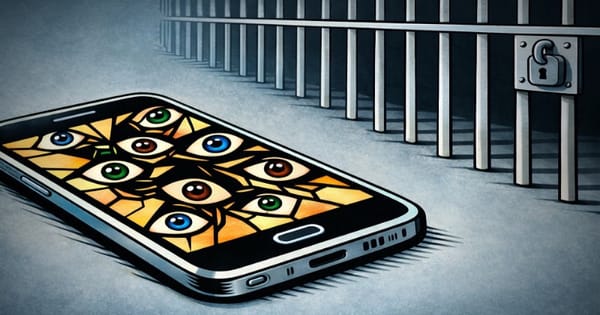FBI Warns of Scammers Impersonating US Officials In Deepfake Scam Campaigns

The FBI has issued a public service announcement warning that cybercriminals are using AI-generated voice deepfakes to impersonate senior U.S. officials in phishing attacks.
Malicious actors have been using advanced synthetic voice technology to create audio messages that sound like real government officials, the law enforcement agency says. These messages are then used in targeted vishing (voice phishing) campaigns designed to gain trust, compromise accounts, and steal sensitive information or money.
“Since April 2025, malicious actors have impersonated senior US officials to target individuals, many of whom are current or former senior US federal or state government officials and their contacts,” the FBI warned.
What’s Happening?
The FBI says threat actors have been:
- Impersonating current and former senior US federal and state officials
- Sending AI-generated voice messages (vishing) and text messages (smishing) to individuals
- Claiming urgent action is needed, such as moving the conversation to another messaging platform
Once the attacker gains the victim’s trust, they might:
- Trick them into clicking on malicious links
- Gain access to contact lists or sensitive documents
- Impersonate the victim in additional scams targeting others
The FBI emphasized:
“If you receive a message claiming to be from a senior U.S. official, do not assume it is authentic.”
While this campaign initially targets high-ranking individuals, you don’t need to be a government official to be impersonated—or victimized. Voice cloning technology is now accessible to the public. With just a few seconds of audio, scammers can replicate someone’s voice
They are already using audio deepfakes to impersonate CEOs, influencers, and even family members, often targeting average consumers with investment scams or emergency requests
This isn't the first warning. In 2021, the FBI predicted deepfakes would become a key tool in cyber and influence operations.
Read more from Bitdefender:
- Audio Deepfakes and Giveaway Scams
- How Deepfakes Work and How to Protect Yourself
- The Rise of AI-Driven Identity Fraud
How to Protect Yourself from Voice Deepfakes
Whether you're a public official or a private citizen, here’s how to defend yourself:
1. Verify before you trust
If you receive a voice message or call from someone claiming to be an important figure—don’t act on it immediately. Verify their identity using a secondary method, such as an official email or a direct phone call to a known number.
2. Never click on links sent by unknown contacts
If you're asked to "continue the conversation" on another platform, take it as a red flag.
3. Don’t share personal information over the phone
No legitimate official, company, or bank will ask for login credentials, codes, or financial info over a call or text.
4. Use identity protection and scam detection tools
Bitdefender Digital Identity Protection (DIP)
Monitor your personal data online and get alerted if it’s found in leaks or used fraudulently. DIP helps you:
- See if your email, phone, or credentials have been exposed
- Get real-time alerts on social media doppelgangers and data breaches
- Lock down your identity before it’s misused
Bitdefender Scamio (Free AI Scam Detector)
Got a strange message, email or phone call? Send it to Scamio or ask for an analysis Scamio helps you detect scam patterns and steers you to safety. It’s free to use, whether in your browser, WhatsApp, Facebook Messenger or Discord.
Before clicking any link, run it through Bitdefender’s free tool to check for hidden dangers like phishing pages or malware.
tags
Author
Alina is a history buff passionate about cybersecurity and anything sci-fi, advocating Bitdefender technologies and solutions. She spends most of her time between her two feline friends and traveling.
View all postsRight now Top posts
How Do You Manage Your Passwords? We Ask Netizens
December 18, 2025
Cybercriminals Use Fake Leonardo DiCaprio Film Torrent to Spread Agent Tesla Malware
December 11, 2025
FOLLOW US ON SOCIAL MEDIA
You might also like
Bookmarks







